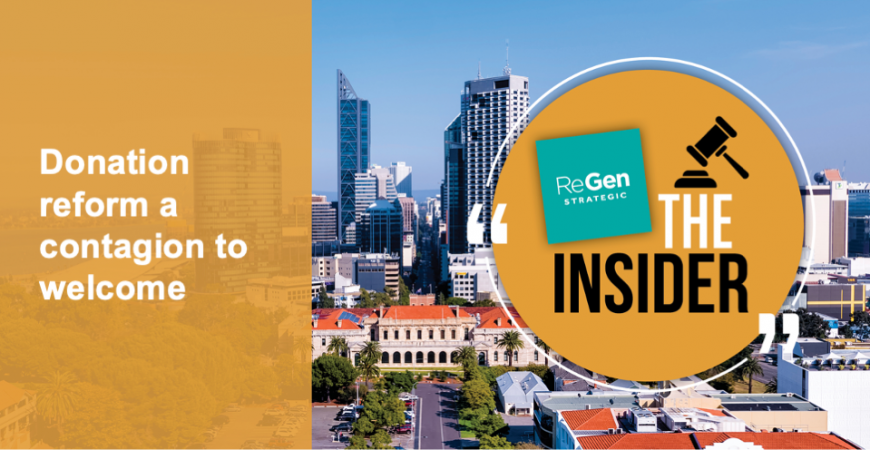In 2020, Western Australians headed into the Christmas period with a lingering unease about our State border holding back COVID.
Four years on, there is the prospect that a new contagion – in the form of political donation reform – may actually breach the border.
Discomfort about money in politics has existed since Athenians started gathering in squares.
But the sheer volume of money sloshing around modern political systems has become an existential threat to democracies globally.
Spending on the 2024 US elections has been conservatively estimated to be in the tens of billions of dollars. Judging from the results, coverage and discourse, it is hard to see how the public received value for money.
Hundreds of millions of dollars moves through the Australian political system annually. As these figures grow, so too does public distrust in our political system and democratic institutions.
Alongside formal mechanisms for political donations, ‘dark money’ – whereby the funding source or donors is not publicly disclosed - has manifested to become a malignant tumour on democratic principles and public policy.
The straight-shooting Premier of South Australia, Peter Malinauskas, has championed a generational reform of political donations which, if successfully implemented, could offer a model that other Australian jurisdictions will observe with interest.
Several features of these reforms appear both sensible and practical:
- Lowering donation thresholds for public disclosure to enhance transparency.
- Introducing donation caps to curb the influence of ‘big money’ from having outsized influence.
- Phasing out ‘dark money’ by creating stricter rules for third-party groups that are not directly related to political parties or candidates.
- More frequent disclosure and reporting, potentially extending to whether the funds are allocated for media buys, advertising, or general campaign activities.
- Increases to public funding of political campaigns, to level the playing field for all candidates and reduce the reliance on private donations.
There are very few, if any, participants in the political process who enjoy the process of fundraising.
For politicians and aspiring candidates it is a gigantic distraction from their preferences to advance policy or engage constituents.
For donors and government relations professionals, the prospect of another set menu during the silly season quickly loses its lustre.
Like most registered lobbying entities, ReGen Strategic participates in a selection of political fundraisers, in compliance with our policies and relevant legislation.
But there is an uncomfortable truth to claims that donations merely provide access or brand exposure.
If it doesn't influence decision-making, then why do it? If it doesn’t provide a tangible or intangible return, then how can it genuinely be justified to shareholders or the public?
ReGen Strategic’s Stakeholder Engagement practice is built upon an expert understanding of government and the political process. Irrespective of reforms to political donations, both government relations and lobbying has an ongoing role to play for companies, non-for-profit entities and the local government sector.
Freed from a direct or indirect linkage to political donations, ministerial briefings, engagement with MPs and familiarisation with the civil service should remain perfectly valid, ethical and impactful.
If the proposed reforms in South Australia prove successful, there is a good chance they will spill over the border and into every other jurisdiction across Australia.
With democracy under threat globally from authoritarianism, hyper-partisan media and geopolitical tensions, Australia doesn’t have a second to lose.
 ReGen Strategic
ReGen Strategic